Archives
now browsing by author
So, the new Pokémon game came out last week… (Link Blog)
…and, yes, Pokémon is still very much relevant today.

As with every release of each new Pokémon game, hundreds of these little critters are being introduced to the world. What began as a franchise consisting of 151 Pokémon species, is now home to a total of 719 different creatures (excluding 2 new Pokémon which has yet to be officially revealed)!
What fascinates me most about Pokémon, however, is how diverse and complex this fictional world has become, and a part of this is how Language (and basic concepts of Linguistics) are integrated in the franchise.
Believe it or not, the world of Pokémon, although largely fictional, is based on real places on earth. Furthermore, they are not limited to only specific places in Japan but extends to other regions. For example, the Kalos Region, one of 6 major regions in the Pokémon world, is based on France. Its capital, Lumiose City, is based on Paris, and the Prism Tower found in the city is, of course, inspired by the Eiffel Tower.
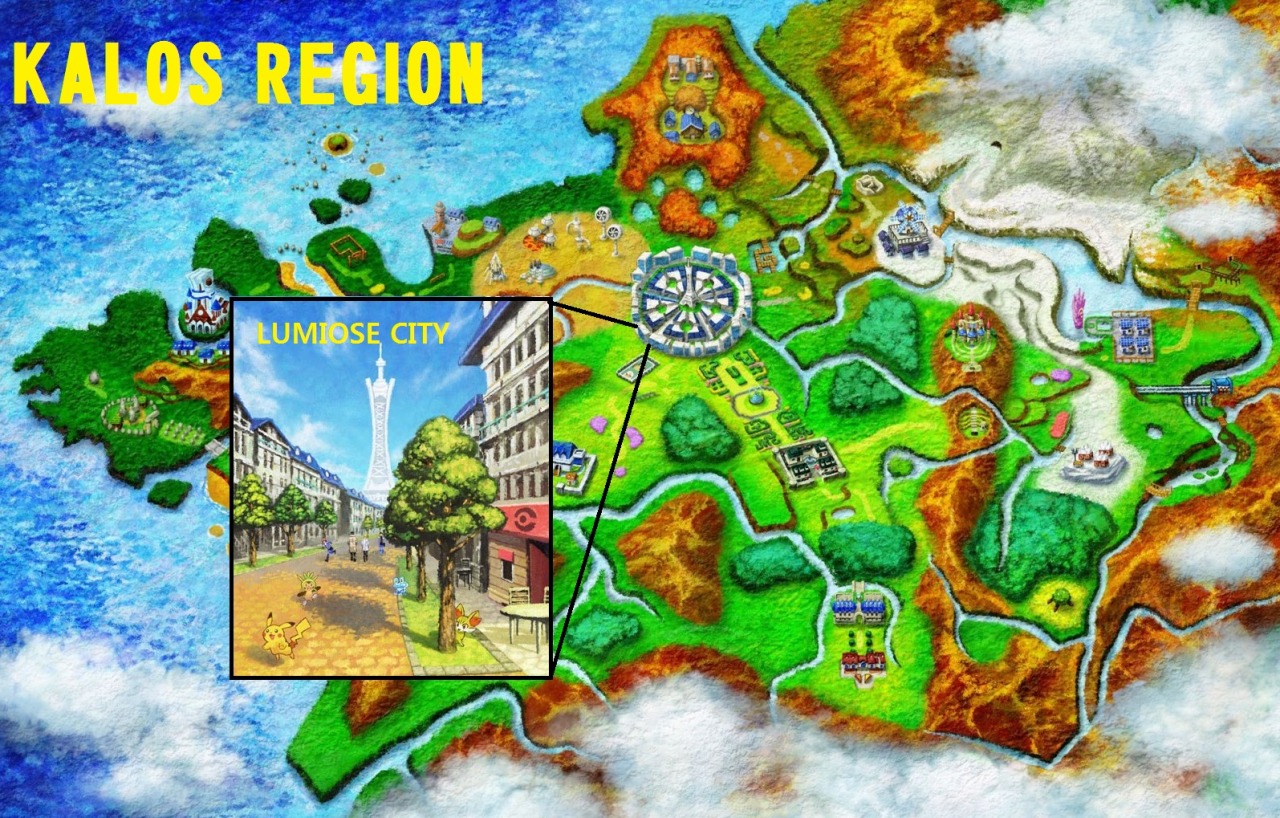
How does this relate to Linguistics in the Pokémon world? Well, it has to do with diversity. Because the Pokémon world consists of such diverse regions with its own unique inhabitants, Language Variation and Language Contact (Loanwords and Pidgin/Creole Languages) exist.
While it does sound childish, the names of each Pokémon are quite interesting. Looking at the etymology of each name often show a mix between different languages (A list of Pokemon name origins).
A more complex name can be seen in the newest Pokémon, Diancie (Pokémon #719), which includes the use of loanwords.
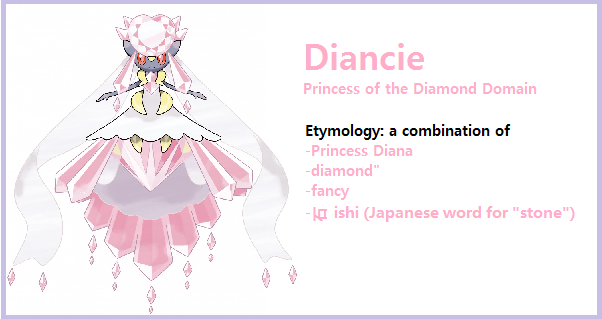
As mentioned before, “Pidgin” Languages also exist in the Pokémon world. Although not as extensive as real Pidgin Languages, the Orange Islands is a region that has its own unique versions of the language, varying with each different island.
Finally, there is an entirely separate language spoken by the Pokémon themselves. Interestingly enough, there are quite a lot of similarities between Pokemon Language and Animal Communication in Linguistics. Morever, the humans in the Pokémon world are unable to learn and understand Pokémon language just as humans in the real world can not learn animal language.
In fact, there are many cases in the Pokémon world where children are raised by Pokémon (ex. Kangaskhan Kid). They are pretty much similar to feral children (ex. Genie) in that it is extremely difficult for them to acquire human language. Chomsky’s critical period hypothesis? Perhaps. Perhaps not.
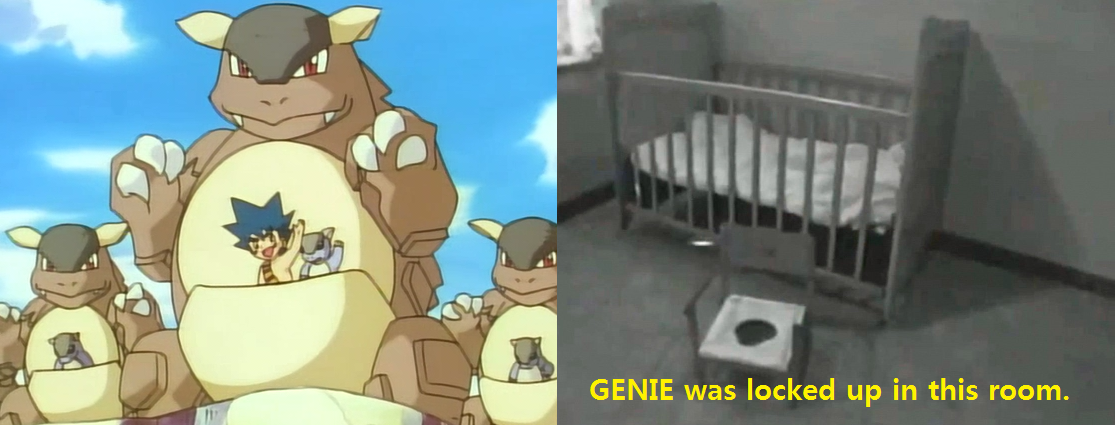
There is, however, a very odd Pokémon named Meowth that can speak and understand both Pokémon and human language. The way this creature acquired human language is very similar to how babies acquire language (Child Language Acquisition) and the stages involved in first language acquisition (Babbling Stage -> One Word Stage -> Multi-Words).


Well, that’s it for my geeky take on Pokémon and Linguistics.
Slang Quiz (Vlog #1)
By: Aaron Hayag & Cheyanne Tarango
Since jargon and slang are elements found in Language Variation, we decided to quiz each other with slang words we learned from the region we grew up in.
Cheyanne – “SoCal” (reveals a lot of Spanish influence)
Aaron – Philippines (though technically not a “region”, English is still considered as one of the official languages in the Philippines so a lot of the slang words are actually in English; similar to how the word “bigpella” in one of the Hawaiian Pidgin languages we learned in class comes from the English phrase “big fellow” but with a slightly different meaning)
Language is Key (HW-4 )
Language is the key to uncovering who we are: the secrets of our past, present, and future!

By: Aaron Hayag, Cheyanne Tarango, Alonzo Garcia, Angela Almeida, Tian’ao Wang, and Aleena Nawabi
My language is actually changing? (Extra Credit)
So I took the Harvard Dialect Survey without any expectations thinking that It wouldn’t be able to pinpoint my location (since I speak with a “Filipino accent”) but lo and behold, it was actually correct (well, mostly)
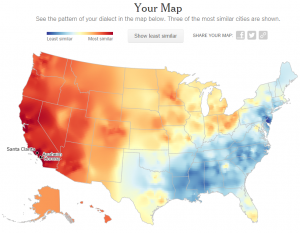
(I took the quiz twice, this was my second result. My first result said that my dialect is most similar to that of Los Angeles. I was actually really surprised that both results were consistent and accurate).
Speaking of my accent, I learned English in the Philippines from pre-school up to 4th grade (approximately 12 years) so when I moved to California I simply spoke the way English was taught to me. (example: I put a strong emphasis on the letter ‘v’ making it sound like a ‘b’. I used to say “I lab you” instead of “I love you”) Anyways, I took the survey with that mindset and chose words the way I would normally pronounce them. The survey results, however, was able to tell that I live somewhere near Southern California. It might be because I am just oblivious to how I am speaking but maybe my language is actually changing the longer I live in California.
Among everything else, what this survey told me is that region has a really large impact on how you speak a language!
Diverse Linguists
 Aaron Hayag
Aaron Hayag
- DOB: 02/13/1995
- Place of Birth: Philippines
-
Languages:
- Filipino, English
- Took 3 years of Spanish
- Currently taking Korean.
- Random Facts: Was heavily exposed to Chinese and Japanese culture through media and other outlets (music, television, relatives, etc.)
- Loves going to concerts (favorite bands: 소녀 시대 (SNSD) and Infinite
I am a freshman attending San Diego State University. I am currently undeclared but I have a strong interest in World History and Anthropology. I would love to travel all around the world to see the famous landmarks of history, experience other cultures first hand, and most importantly communicate with people from different places through language. That being said, my curiosity and interest in foreign languages, has prompted me to take Linguistics 101 to get a closer glimpse at the structure of language. I have familiarized myself with the basic morphological types of languages. Synthetic Languages: Tagalog and Korean (Agglutinating); Spanish (Fusional) and Isolating Languages: Mandarin Chinese! As well as English, which does not really fit into any specific category.
 Angela Almeida
Angela Almeida
- DOB: 02/04/1996
- Place of Birth: San Diego
-
Languages:
- English & Spanish
- Spoken both equally throughout my life
- Took 3 years of Spanish in high school
- Passed the AP test
- English & Spanish
- Hobbies: Reading, writing, going to concerts, mindlessly scrolling through social sites. Whoops!
I have always been a writer. Making up stories and reading books prompted my love for English. Although I have always considered classroom english to be relatively easy, linguistics is more of a struggle. It’s always something new to learn everytime I’m in the room. Thus far, I am pretty good at phrase structure trees as well as phonetic sounds in the standard English language. By already being bilingual this helps plenty because I already knew things that didn’t have a name for them up until now. Hopefully by the end of this course, I will have gotten a better grip at linguistics and what it is about.
Alonzo Garcia
- DOB: 07/20/1995
- Place of Birth: Chula Vista, CA
-
Languages:
- English, Spanish, Italian
- Took and passed AP Eng. Lang. and Eng. Lit., AP Spanish Lang. and Spanish Lit., and AP Italian
- Planning to learn French, Portuguese, Mandarin Chinese within the next five years.
- English, Spanish, Italian
- Hobbies: Languages, Wrestling, Playing/Listening to Music, Reading
Languages have always been a passion of mine because I feel they are a bridge between cultures and unify the world. Currently I speak three languages which include English, Spanish, and Italian. A strength in linguistics I’ve obtained through speaking Spanish and Italian is the understanding of lexical and structural ambiguity. In the languages of Spanish and Italian there are a large quantity of terms and sentences with multiple meanings and for that reason ambiguity is a strength of mine.
 Aleena Nawabi
Aleena Nawabi
- DOB: 05/20/1983
- Place of Birth: Afghanistan
- Languages: Farsi, Dari, Arabic, Urdue, English, Pushto
- Hobbies/Fun facts: I love running, Cooking, Singing, teaching, learning, and SYNTAX!
Because I was adopted, my first language is Spanish but because I did not practice it, I have forgotten most of the language. My second language was English and the rest of the Languages I acquired was in my mid-teens. Next semester I will be learning Turkish because I am planning to teach abroad in Turkey.
 Tian’ao Wang
Tian’ao Wang
- DOB: 08/11/1995
- Place of Birth: China
-
Languages:
- Mandarin Chinese, English, some Cantonsese
- Hobbies/Fun facts: Swimming, watching movies, singing,playing computer games.
I was born in China and was exposed in Mandarin Chinese all the time, so my first language is that. My second language is English, I have studied English since I was in primary school. As for the Cantonese , that’s my favorite language, I have practiced it for three years.
 Cheyanne Tarango
Cheyanne Tarango
- DOB: 05/19/1996
- Place of Birth: Fillmore, CA
-
Languages:
- spoke English growing up
- was exposed to Spanish during childhood
- Took two years of Spanish in high school
- currently taking another Spanish class.
- Hobbies/Fun facts: I love Netflix, food, music, and sleep. I enjoy spending time with my family and also going to concerts.
I am a freshman at San Diego State University. I’m currently undeclared but I have a developing interest in Construction Engineering. After I finish school, I wish to travel to countries on the other side of the world to experience the different cultures and see the way they live. It would be a lot harder to do so without learning a few things about language first, things that are taught in Linguistics. Linguistics 101 has helped me understand some of the basic rules of syntax and semantics in other languages, like some of the rules for Spanish language. I’d say that my strengths in Linguistics are determining what part of grammar words in a sentence are and how they are paired in a syntax tree. Another strength I have is working with morphemes.
Dingming Liu
- DOB: 04/29/1995
- Place of Birth: China
-
Languages:
- spoke Chinese growing up
- Hobbies/Fun facts: sports ,music, movies, travelling, cars
Took fours years of English from high school till now and I am currently studying Introduction to Spanish class.
Despite their differences, 7 linguists from around the world have come together to share their knowledge with each other! NO LANGUAGE BARRIERS CAN STOP US!
Blog 1
My interest in languages began when I lived in the Philippines. I grew up in a province not too far from the capital and despite the majority of the population speaking in Tagalog, I was exposed to a lot of foreign languages at an early age. For example, I grew up watching anime which exposed me to Japanese. Since cable TV wasn’t prominent in the Philippines back then, anime was the only c thing closest to children’s cartoons. 80% of the video games I played were imports from Japan and Korea, and most of them weren’t even been translated so I played through them in a completely different language. Telenovelas which were considered to be a pastime exclusively for adults introduced Chinovelas (Chinese/Taiwanese Dramas) and Koreanovelas (Korean Dramas) to teenagers. They became insanely popular spawning a huge interest in Korean/Chinese/Japanese music, fashion, culture, and especially language. I remember watching MYX (a Filipino music show similar to Mtv) and the top ten charts would play a few Filipino songs, some Britney Spears or Avril Lavigne, and at the very top were the boy bands from Taiwan and Korean. Basically, because I was exposed to so many different languages as a child, my interest in them only grew. I took Spanish classes in High School for three years and I’m now currently taking Korean.
My very first experience with learning a foreign language, however, was in an English class. English was the very first foreign language I learned because it was a mandatory subject everyone was required to take in school. I remember one of the main school policies was that no one was allowed to speak in Tagalog on campus (except in Wika – filipino literature, and Civics class). Nevertheless, all the students including the teachers never followed this rule. The only time we practiced it was whenever the principal was near. As a student, I was never really fond of English because it meant longer school hours (English was a two hour long class) and more homework. I also did not understand the importance of English back then because everyone, including my family, simply communicated in Tagalog. However, I’m really grateful that my school had put so much emphasis on English because it’s been a very useful skill to have. Though I wouldn’t call it a burden, sometimes my accent makes me very self-conscious whenever I’m speaking with a native English speaker. Since I learned English in the Philippines, the pronunciations are very different. For example, I can’t say words with an [ɪ] sound naturally. I would actually have to consciously process it in my brain if I want to say the word the “right” way. If I do not, I end up saying ‘keel’ instead of ‘kill’ or ‘beet’ instead of ‘bit’. I’m quite confident whenever I’m writing an essay for an English class, for example, but as soon as it becomes an oral assignment, It becomes a difficult task for me. I once took a public speaking class in high school, and although I aced the class, I stuttered a lot during my presentations. When I mispronounce a word, I would stop what I’m saying and correct myself but then I would have lost my train of thought which will then result in gurgling a bunch of random words. Other than that, language is fun!

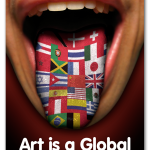
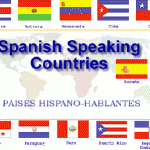
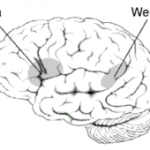
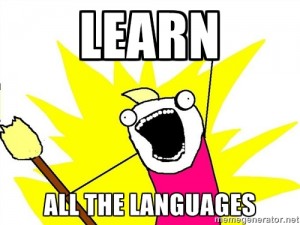
 D5 Creation
D5 Creation